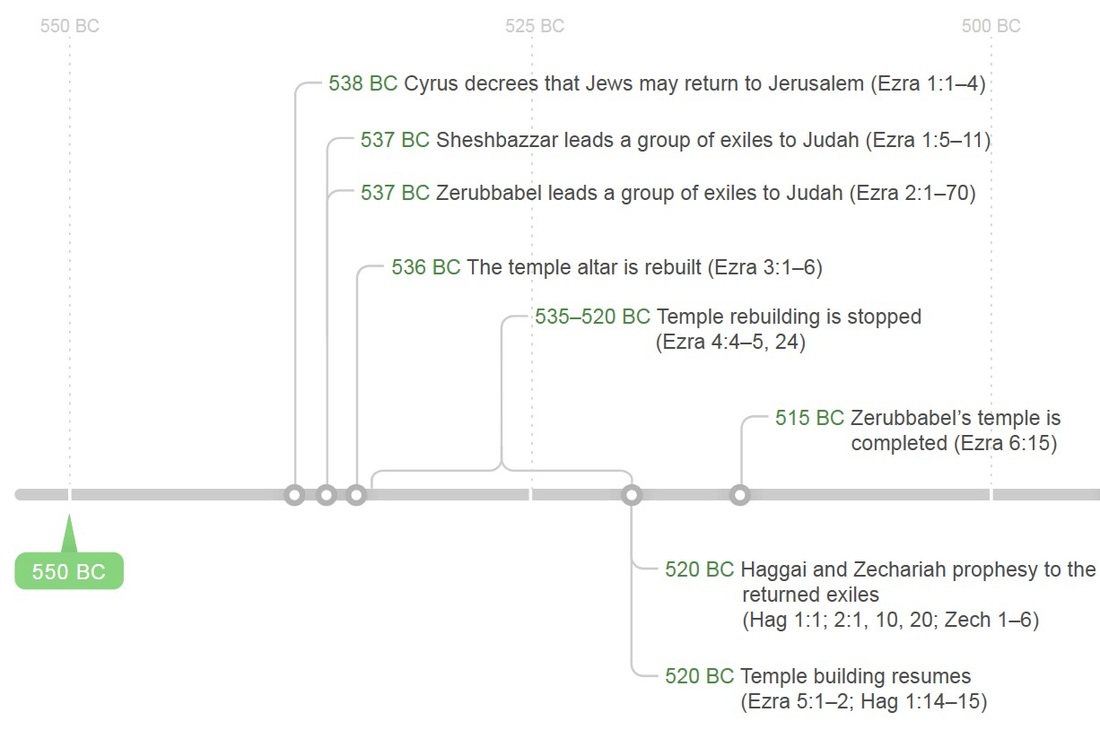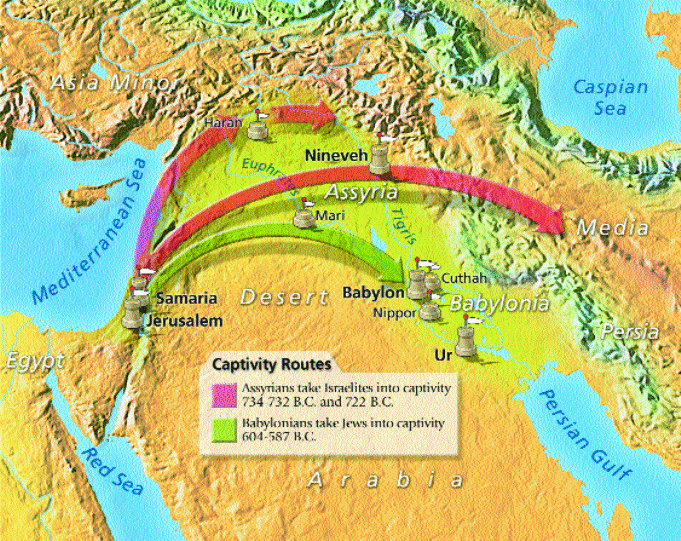| Teacher: Rusty Kennedy Series: Ezra / Nehemiah |
- The temple was completed in 515 BC in the reign of Darius I.
- After Darius’ death in 486 his son Xerxes ruled for 20 years (485–465).
- Since Xerxes was the Ahasuerus mentioned in the Book of Esther, the events of that book occurred between Ezra 6 and 7.
- Then Xerxes’ son Artaxerxes ruled from 464 to 424.
- From 515 (Temple Built) to 458 (Artaxerxes’ seventh year) was 57 years.[1]
- The name Ezra is probably a shortened form of Azariah, meaning “the Lord has helped.”
vs 6 - The word also referred to a learned man who could read and write and a learned man who could teach what he read in God’s Law.
- Ezra was called a “teacher” (sōp̱ēr) four times (Ezra 7:6, 11–12, 21; cf. v. 25).
- The law of Moses is literally “the Torah of Moses”.
- This refers to the Pentateuch, that is, the first five books of the Old Testament that were called the Torah.
- Ezra had the blessing of the pagan King Artaxerxes as well as the blessing of the covenant God of Israel.
- A few years later Nehemiah had an official position before the king (Neh. 1:11), but Ezra held no such position.
- For the first of eight times in the Books of Ezra and Nehemiah, mention is made of God’s hand being on Ezra and Nehemiah (Ezra 7:6, 9, 28; 8:18, 22, 31; Neh. 2:8, 18).
- It means that God’s active presence was with Ezra or that God acted with favor toward Ezra.
vs 8 - Which was 458 BC
vs 9 - The heart was the center of emotions for the Hebrews.
- It was also the source of thought and the basis for decision-making and thus it was a symbol for one’s whole being.
- Ezra had set his heart. The verb is a perfect form that has a basic meaning of “to be firm, ready, certain.”
- The verbal form used here has a causative meaning, that is, “to direct, to set.”
- In other words, Ezra “had devoted himself” or “had committed himself” to the purpose of studying, interpreting and teaching the Law.
- Ezra’s action took place before the event of the previous verse; that is, because of what Ezra did, God’s hand was upon him.
-To study in this context means “to inquire” or “to seek.”
- I had 4 different mean this week seek me out and tell me that they wanted to seek wisdom, they wanted to pursue God, they wanted to know the heart of God.
vs 11- No reason for the decree was given.
- It can be surmised that Ezra had asked for permission to take a group back and that this decree was the official granting of his request.
- The decree was sent to Ezra personally.
vs 25 - In return for granting these privileges the king was to receive some benefits from the expedition.
- He wanted to avoid uprisings or feelings of anger against him (v. 23) and to have order in that part of his empire (vv. 25–26).
vs 27 - Ezra added that the purpose of all this was to bring honor to the house of the Lord.
- The privileges granted by Artaxerxes were for God’s glory, not Ezra’s.
Ezra 8
vs 14 - The total number of men who returned was 1,514 including 18 heads of families and 1,496 other men.
- With the 258 Levites assembled later (Ezra 8:15–20) the number came to 1,772.
- With women and children, the group may have totaled between 4,000 and 5,000.
- Even so, this group was much smaller than the near-50,000 on the first return (2:64–65).
vs 15 - Levites were to function as teachers of the Law.
- Therefore they were to have an extremely important role in the reestablished community.
- The people desperately needed to understand the importance of the Law as they faced their situation as returnees from exile.
- The Levites would have a difficult time in the new land for they were to be involved in the disciplined ministry of temple service.
vs 20 - The men were able to secure 38 Levites from two families—18 from Sherebiah’s family and 20 from Jeshaiah’s relatives—as well as 220 … temple servants.
- Only then was Ezra ready to start on the important journey.
- Without the Levite teachers of the Law and people to serve at the temple all would be lost and the trip futile.
vs 23 - Being humble before God shows one’s spiritual dependence, his acknowledgment that God is in total control.
- Ezra did not want to ask for military protection (soldiers and horsemen) because he had already publicly announced that God would take care of the people as they returned.
vs 30 - All this would be valued at many millions of dollars today.
- No wonder Ezra was concerned about the people’s safety.
vs 31 - The total journey was about 850 miles and must have been difficult for a group without a military escort.
- The caravanned an average of 7.5 miles a day.
- At 7.5 MPD = 850 miles = 113 days roughly or 4 months.
- 9 He began the journey from Babylon on the first day of the first month and arrived in Jerusalem on the first day of the fifth month since the gracious hand of his God was on him. [2]
vs 36 - Those living in surrounding communities were in such awe of the return and how God provided for them and protected them that they too wanted to join in and provide for the people of God.
[1] Martin, J. A. (1985). Ezra. In J. F. Walvoord & R. B. Zuck (Eds.), The Bible Knowledge Commentary: An Exposition of the Scriptures (Vol. 1, p. 665). Wheaton, IL: Victor Books.
[2] Noss, P. A., & Thomas, K. J. (2005). A Handbook on Ezra and Nehemiah. (P. Clarke, S. Brown, L. Dorn, & D. Slager, Eds.) (p. 155). New York: United Bible Societies.



 RSS Feed
RSS Feed